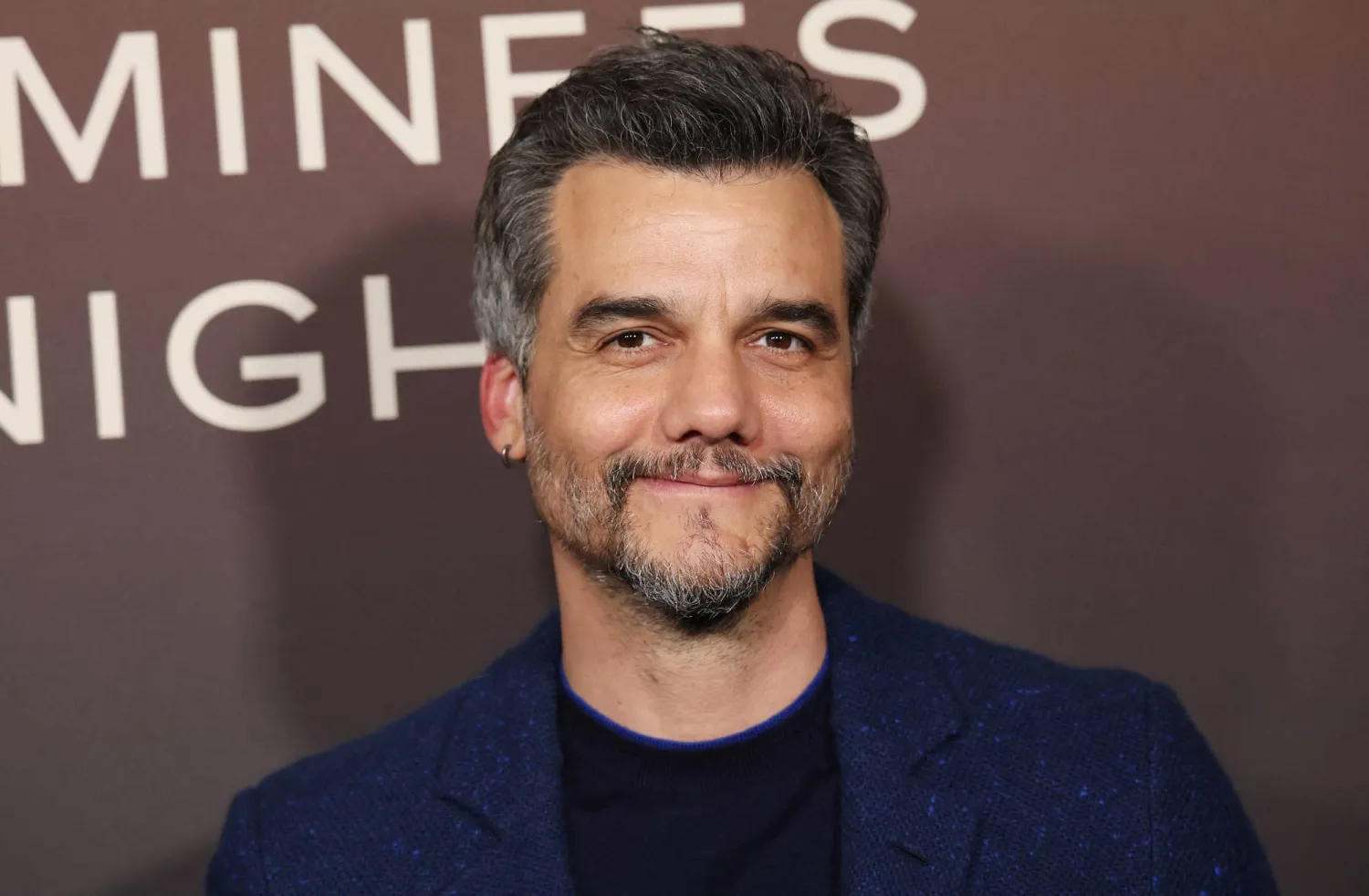If our world should one day cease to exist, and some improved civilization from another galaxy stumbles upon our popular culture and seeks to understand all the fuss about Emma Stone — well, we now have the film clip they should see.
She’s not even speaking, so translating Earth language won’t be an issue. She’s simply dancing. It’s toward the end of her latest collab with Yorgos Lanthimos, the challenging, intriguing, perplexing-if-not-downright- infuriatingly-opaque “Kinds of Kindness.” Stone is doing an improvised victory dance, and it’s glorious. What’s clear is that the Stone-Lanthimos pairing, in their third feature together, is continuing to nurture an aspect of Stone’s talents that increasingly sets her apart: Her fearlessness and the obvious joy she derives from it.
Then again, it’s possible we especially love this scene because by now we’re parched — thirst is actually a theme of the film, but let’s forget that for a second — for a wee bit of joy. There’s barely an ounce of it in “Kinds of Kindness,” nor is there much beauty (unlike the gorgeous period romps many know Lanthimos best for, “The Favorite” and last year’s sumptuous “Poor Things.”) Nor is there any recognizable kindness to speak of — “recognizable” being the operative word here. Which might be the point of the title. Or not.
So what IS “Kinds of Kindness”? OK, here goes. Lanthimos, working for a fifth time with screenwriter Efthimis Filippou (“The Lobster”), has created a triptych — three mini-films with the same cast. A solidifying troupe of Lanthimos regulars appears, with Willem Dafoe, one of the most distinctive actors in the universe, rejoining Stone’s Bella from “Poor Things,” joined now by a terrific Jesse Plemons, who won the best actor prize at Cannes, as well as Hong Chau, Margaret Qualley, Mamoudou Athie and Joe Alwyn.
These three segments, which together run close to three hours, are separate stories with different characters, and an overarching theme that can best be explained by parsing the lyrics of a Eurythmics song.
“Sweet dreams are made of this,” goes the iconic song, with which Lanthimos begins his movie. Then, more importantly: “Some of them want to use you. Some of them want to get used by you. Some of them want to abuse you. Some of them want to be abused.” Yup, all these things happen in “Kinds of Kindness,” a meditation on our free will and the ways we willingly forfeit it to others — in the workplace, at home, and in religion. For all these characters, something about being subjugated by someone else provides a perverse sense of comfort.
In the first segment — easily the tightest, most entertaining and impactful — our protagonist, Robert (Plemons), works for some sort of shady business run by Raymond (Dafoe), who controls everything Robert does.
And we do mean everything. What he eats, drinks, wears, where he lives with his wife — also hand-chosen for him — even whether they procreate. Raymond decides it all, and that’s fine with Robert — it even gets him cool gifts, like a smashed John McEnroe racket — until he’s asked to basically commit manslaughter.
He underperforms and is fired. Then, he becomes obsessed with getting back into his boss’ good graces, whatever it takes.
Stone appears 40 minutes into the movie, a cog in the same wheel. But she takes center stage in the next installment, as Liz, beloved wife of Daniel, a suburban cop (Plemons, with shorter and lighter hair). Liz, a scientist, has vanished during a sea voyage — she’s “traveled the world and the seven seas,” to continue with the Eurythmics lyrics.
Finally she’s rescued, and returns home to her loving husband. Loving, that is, until Daniel starts suspecting she’s not really Liz (she may also be a cannibal). She sure looks like Liz, but her shoes don’t fit. Also, she likes chocolate now and can’t remember Daniel’s favorite song. So, he starts testing her, asking her to do awful things. And for some reason, she does.
We won’t spoil any of the mini-endings, though you may find they’re not really endings anyway. (If the lack of clarity in this review is annoying you, well, welcome to this movie? Should that have been an exclamation point? We’re suddenly feeling insecure even about punctuation.) But the “whoa, what?” feeling you may have at the end of the second part can’t fester, because soon we’re in a cult, where the only liquid members can drink is sanctified by the tears of creepy leader Omi (Dafoe, who else?) and wife Aka (Chau.)
Stone and Plemons reunite here as cult members tasked with finding a woman, out there somewhere, who’s able to raise the dead. For this holy search for a spiritual leader, Emily (is this a nod to Stone’s real name?) has left a husband (Alwyn) and young daughter behind. She drives a purple sports car with increasing abandon (speaking of fearless, Stone has said she did much of her stunt driving). But she, too, messes up, and is left begging to be allowed back in.
Will she find what she is looking for?
Well, that depends on whether she knows what it is. Characters here actually seem to find what they THINK they seek — but it leads them, of course, down dark paths. But hey, everybody’s lookin’ for something, the song tells us. Not to be trite, but who are we to disagree?
In any case, seeking a neat conceptual bow to wrap this all up — as in Bella’s satisfying empowerment in “Poor Things” — will lead nowhere. So maybe the best lyric we can take from the Eurythmics is the simplest one of all:
“Keep your head up. Movin’ on.”









